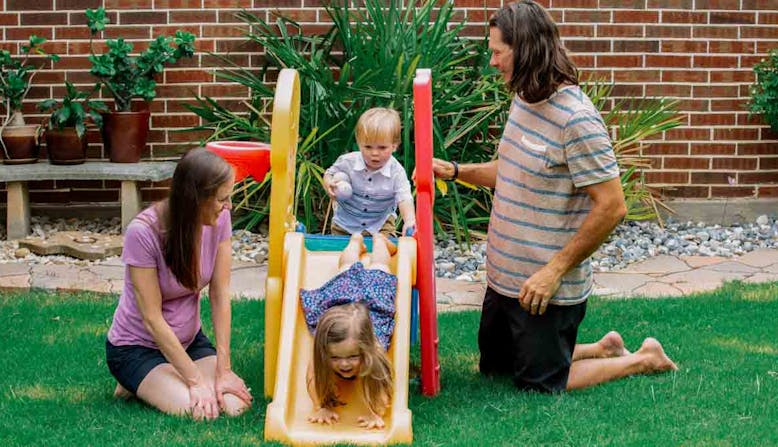Approximately one-third of those who get psoriasis are under 18 years old when the disease first surfaces. [1] Every year, roughly 20,000 children under 10 are diagnosed with psoriasis. [2] It may take time to get a correct diagnosis, as psoriasis is sometimes confused with other skin diseases like eczema and diaper rash.
Causes and Triggers
Psoriasis is not contagious. You cannot catch it from anyone. While scientists do not know exactly what causes psoriasis, we do know the immune system and genetics play major roles. The genetics of psoriasis are complex, and it is possible for people with no family history of psoriasis to develop it. A triggering event may cause a change in the immune system, resulting in the onset of psoriasis symptoms. Common triggers for psoriasis include stress, illness, injury to the skin, and certain medications.
Some young people report the onset of psoriasis following an infection, particularly strep throat. One-third to one-half of all young people with psoriasis may experience a flare two to six weeks after an earache, strep throat, bronchitis, tonsillitis, or a respiratory infection. Areas of skin that have been injured or traumatized are occasionally the sites of psoriasis, known as the Koebner [KEB-ner] phenomenon. However, not everyone who has psoriasis develops it at the site of an injury.
For Parents
If your child is newly diagnosed, you may be adapting to a new way of life. If your child has had psoriasis for a while and is now entering the teen years, new challenges may arise. Whatever the circumstances, know that you are not alone. There are thousands of parents whose children are living—and thriving—with psoriasis. Connect with other parents in the psoriasis community and know that we are all in this together. Learn how to better give care to your loved ones with psoriatic disease with our free care partner booklet.
%20(7).png?ixlib=gatsbyFP&auto=compress%2Cformat&fit=max&rect=0%2C0%2C650%2C450&w=650&h=450)


